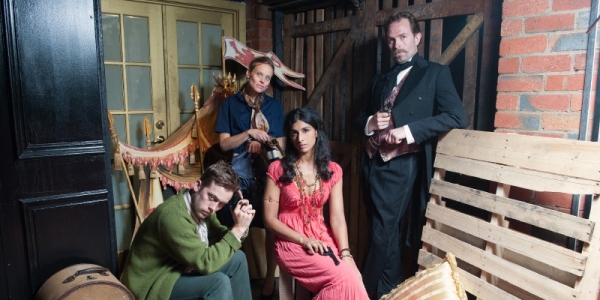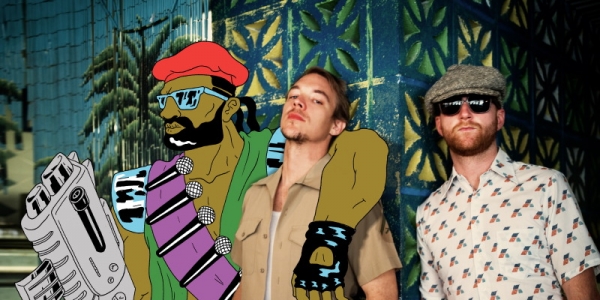He originally intended to kill President Jimmy Carter but on March 30, 1980 Hinckley fired six shots out of a revolver at US President Ronald Reagan. He missed Reagan directly, although a ricocheting bullet did seriously injure him, and he shot three others in the attack. No one died, although one victim remains paralysed as a result.
Hinckley is one of many – and we’re talking double-digits as a figure – who have attempted to assassinate American presidents throughout history. Four have actually been successful, with Presidents Lincoln, Garfield, McKinley and Kennedy all meeting an untimely demise at the hands of another.
What motivates them to do such a thing? Stephen Sondheim and John Weidman’s musical Assassins explores that very question. The black comedy first opened Off-Broadway in 1991, and the 2004 Broadway production won five Tony Awards. The latest production opens tonight in Melbourne, starring Nadine Garner as Sarah Jane Moore, who attempted to assassinate President Gerald Ford and Nick Simpson-Deeks as Lee Harvey Oswald, who shot dead JFK.
Playing Hinckley is Matt Holly, who most recently toured nationally in A Chorus Line and will be in the Australian return of Wicked. Joining him playing other historical figures – as assassins and presidents – are cast members Mark Dickinson, Shane Nagle, Luigi Lucente, Matt Holly, Aaron Tsindos, Tod Strike, Sonya Suares, Shelli Jean Grant, Martin Lane, Nic Kyle, Jennifer Reed and Leighton Young. “The cast are a dream team who will have the audience in stitches one moment and close to tears the next,” says director Tyran Parke. “As a show, it strikes that perfect balance between challenging ideas and sheer entertainment,” he says.
The show, says Holly, is a series of vignettes which are mostly sung. “There are some really, really great little scenes though. It’s a book musical so there are linking scenes,” he explains. “There’s no solid time structure because there’s people who tried to kill presidents hundreds of years ago and people who tried decades ago, so we’re in this almost limbo time frame where the confines of time and space aren’t relevant. My number that I have, the love song, is performed with Lynette Fromme, who is one of Charles Manson’s women,” he says. Fromme attempted to assassinate President Ford in 1975 and was released from prison in 2009.
The score spans historically relevant genres, from folk to ragtime to big Broadway ballads, hoe downs and barber shop quartets and is overseen by Musical Director Luke Byrne.
Holly says he was familiar with Hinckley’s story before signing on to play him. “I wasn’t as deeply informed as I am now but I think everyone remembers the story of the guy who tried to kill the president because he was in love with Jodie Foster. It was such big news,” he says on the phone from Revolt Studios in Kensington, where the cast have been rehearsing six days a week “trying to get this monster up in two weeks”.
Preparing to play Hinckley was a mixture of research and interpretation, he says. “Because these people, you can’t find too many interviews with them directly, or anything like that, so much is left to interpretation from looking at their given circumstances.” So how did he interpret him? “I looked at his family and the way his life went. At school, he did ok, he played sport, he was elected class president. When he left high school it seemed to fall apart a little bit. He moved in and out of home, he had a failed song writing career in Los Angeles. I just looked at how his father was the president of a company and after his brother graduated from quite a prestigious school was made vice president and I thought about the rejection he would feel, the inadequacy he would feel comparing himself to his father and brother and I took that and was left with this really meek, sad person who just wanted to leave a mark but obviously didn’t know to do it and took it in quite a monstrous way”.
Holly also watched Taxi Driver several times from Hinckley’s perspective, trying to better understand how the infatuation with Foster might have developed in his mind. “We need to as actors not judge these people for their acts, we have to play them as humanely as possible and therein lies the challenge, to not pass judgement on the characters we’re playing,” he says.
“It makes it more disturbing for the audience to actually begin to like this character and feel for him as this helpless boy who’s in love with a movie star and then the shock comes from when you see it performed on stage that he did actually try to murder someone out of this love. This act was born out of this love but it was so hateful and despicable”.
BY JOANNE BROOKFIELD







